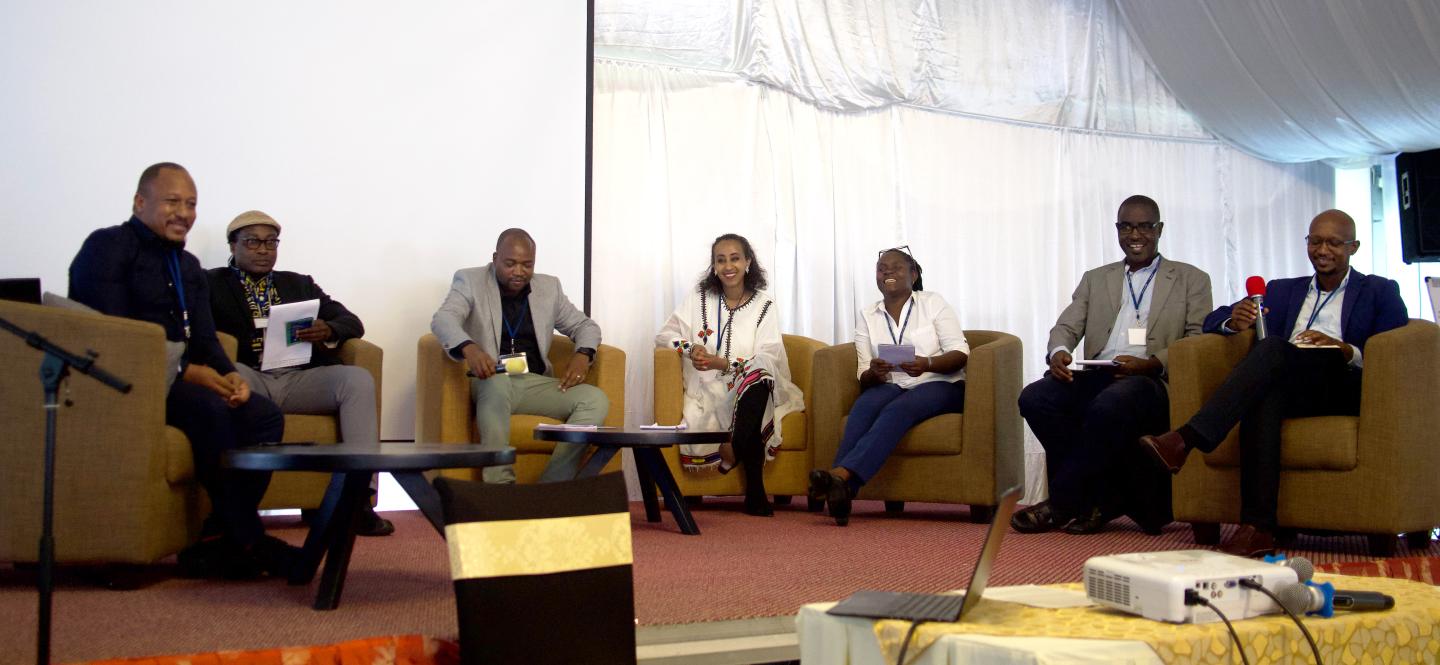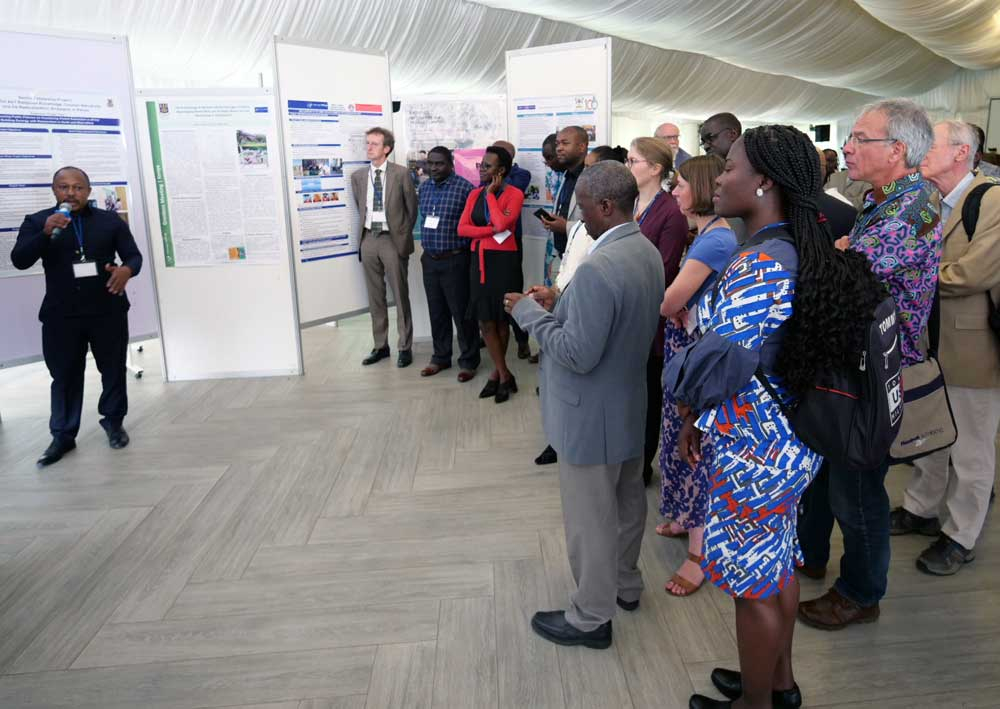Alignment of our international support
Strategic Guidelines on the Internationality of the Volkswagen Foundation (in German)

VolkswagenStiftung
Panel discussion on "Humanities at Crossroads", with (left to right): Elinaza Mjema, Wazi Apoh, Joseph Mujere, Meron Eresso, Plan Shenjere-Nyabezi, Pastory Bushozi and Halkano Abdi Wario.
The Volkswagen Foundation launched its research commitment in Africa 20 years ago. Now, the Foundation is inviting its fellows to Naivasha, Kenya, for a future-oriented dialogue.
After about two successful decades of joint work on and in the initiative "Knowledge for Tomorrow - Cooperative Research Projects in Sub-Saharan Africa", the Foundation is continuing the exchange with its African grantees and German stakeholders: with a Grantees Meeting on April 3 to 6 in Naivasha, Kenya.
For three days, the situation of science on the African continent will be discussed, and the contribution that grantees want to make to the future development of research and teaching will be explored.
The future involvement of African scientists and teams in collaborative projects – especially with German research institutions – to solve global problems will be addressed, as well as the involvement of German participants in African-led initiatives to solve problems in Africa.

Postersession at the grantees meeting
As the foundation moves from regional to thematic priorities in its international funding, global challenges will play a major role at the meeting, – with special attention being paid to the African perspective on these challenges.
However, the near to 100 participants from 21 countries at the meeting - fellows, program coordinators, and members of the initiative’s review juries - will also address the specific conditions for subject areas, for example in a moderated panel discussion on "Humanities at Crossroads: Challenges, Opportunities, Prospects."
Strategic Guidelines on the Internationality of the Volkswagen Foundation (in German)
In total, the initiative "Knowledge for Tomorrow - Cooperative Research Projects in Sub-Saharan Africa" supported 103 fellows (postdocs) in six calls; the topics: Neglected Tropical Diseases, Natural Resources, Engineering, Social Sciences, Humanities, and Livelihood Management. The Foundation also funded 87 collaborative projects (involving 236 researchers) and 81 events.
The funding program was established in 2003 and ended in December 2021. The aim was to contribute to the development and sustainable strengthening of science in all disciplines in sub-Saharan Africa. The focus was on (individual) capacity building and the strengthening of networks both between Germany and Africa and within Africa. Funding instruments included postdoctoral programs as well as cooperation projects and events such as summer schools, symposia, and educational workshops.